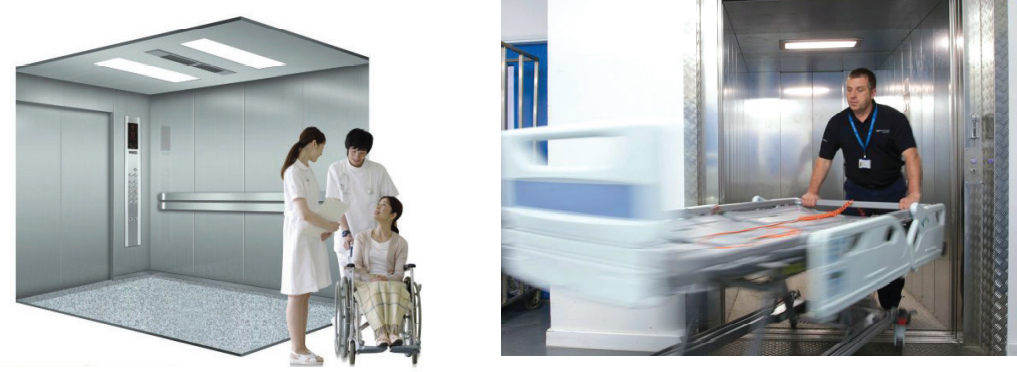
Hospital Elevators
Hospital elevators are specialized vertical transportation systems designed to meet the unique needs of healthcare facilities. These elevators play a crucial role in ensuring efficient patient care, safety, and the smooth operation of hospitals. Key features of hospital elevators include.
Size and Capacity: Hospital elevators are typically larger and have higher weight capacities to accommodate hospital beds, medical equipment, and multiple passengers.
Fast and Efficient: Speed and efficiency are essential to transport patients and medical staff quickly, especially in emergencies. Hospital elevators are designed for rapid movement between floors.
Dedicated Service: Many hospital elevators are designated for specific purposes, such as patient transport, bed service, or freight, to maintain a smooth flow of hospital operations.
Safety Features: Hospital elevators are equipped with advanced safety features, including backup power systems, emergency stop buttons, and systems for priority passenger and equipment transport.
Hygiene and Cleanliness: Hospital elevators are designed for easy cleaning and maintenance to uphold the highest hygiene standards, crucial in healthcare environments.
Hospital elevators are a vital component of healthcare infrastructure, ensuring the swift and safe transport of patients, medical staff, and equipment. Their design and features are tailored to meet the unique demands of medical facilities while maintaining a focus on patient well-being and efficiency.

